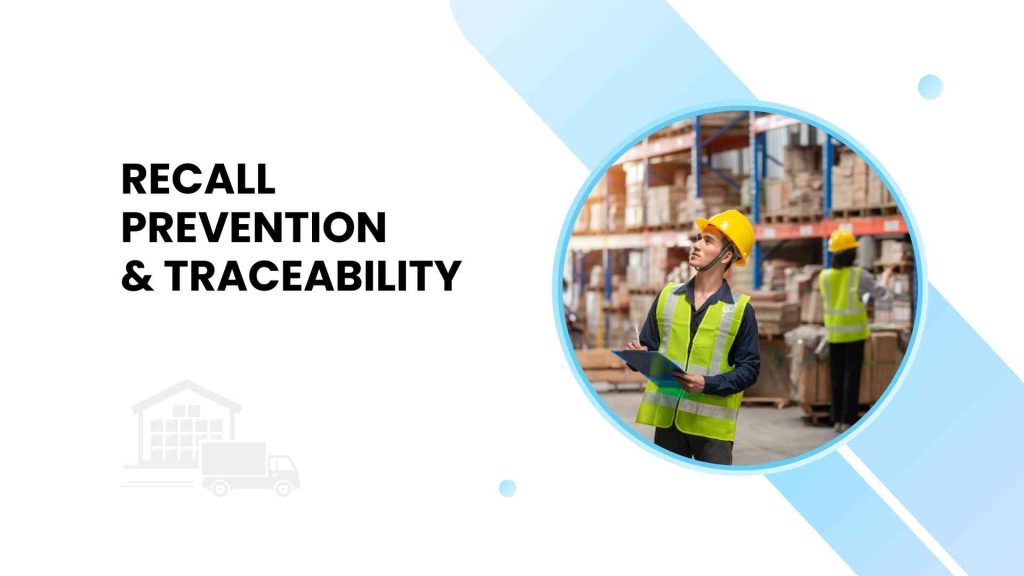In an era of heightened consumer expectations, regulatory scrutiny, and global supply chains, recall prevention and traceability have become paramount concerns for businesses across diverse industries. The repercussions of product recall, ranging from financial losses and reputational damage to potential legal liabilities, necessitate a proactive approach to safeguarding both consumers and brand integrity.
ERP solutions offer comprehensive tools and capabilities to centralize data, manage inventory, enforce quality control, monitor suppliers, and establish end-to-end traceability. We delve into the pivotal role that ERP solutions play in fortifying businesses against recalls and enhancing their capacity to trace and manage products throughout the supply chain. We will explore how ERP solutions can play a role in safeguarding businesses and consumers by preventing recalls and improving traceability.
The Cost of Recalls
Product recalls can devastate any business, resulting in substantial financial losses, legal liabilities, and damage to brand reputation. According to a recent study by the Food-based Marketing Institution, the average cost of a food recall in the United States is around $10 million. For the pharmaceutical and automotive industries, these costs can be even higher.
Beyond financial implications, recalls can lead to consumer harm, trust erosion, and regulatory penalties. Consequently, companies across industries actively seek ways to reduce recall risks and enhance their ability to trace and recall products when necessary.
The Role of ERP Solutions
ERP solutions are comprehensive software systems that streamline and integrate various business processes. From procurement and manufacturing to distribution and finance. ERP solutions can become a powerful tool for recall prevention and traceability when implemented effectively.
Data Centralization
ERP solutions centralize data from different organizational departments and locations. This central repository allows for real-time access to critical information related to product ingredients, suppliers, manufacturing processes, and distribution channels.
Inventory Management
ERP systems provide accurate inventory management, ensuring that products are tracked from when they enter the supply chain until they reach consumers. Real-time inventory visibility enables companies to identify issues promptly and take corrective actions.
Quality Control
ERP systems include quality control modules that allow businesses to set and enforce quality standards. It helps prevent subpar products from entering the market and reduces the risk of recalls due to product defects.
Supplier Management
ERP solutions facilitate supplier collaboration and monitoring. Companies can evaluate supplier performance, assess product quality, and manage compliance with safety standards, reducing the likelihood of using substandard materials.
Traceability
ERP systems enable end-to-end traceability, tracking each product’s journey through the supply chain. In the possibility of a recall, companies can swiftly identify affected batches, suppliers, and distribution points, minimizing the scope and cost of the memory.
Compliance and Reporting
ERP solutions often provide tools to ensure compliance with industry-specific regulations and reporting requirements. It helps companies avoid legal consequences and fines related to non-compliance.
Data Analytics
Advanced ERP systems offer data analytics and reporting capabilities. By examining recorded data and trends, businesses can proactively identify possible problems and take preventive measures before recalls become necessary.
Case Studies
Let’s examine a couple of real-world examples to illustrate how ERP solutions have played a crucial role in recall prevention and traceability:
Food and Beverage Industry: A significant food manufacturer implemented an ERP system. That enabled real-time tracking of ingredient suppliers and production processes. When a potential contamination issue arose, they could pinpoint the affected batches, recall them promptly, and prevent any harm to consumers.
Automotive Industry: An automobile manufacturer integrated an ERP solution across its global supply chain. When a safety-related defect was identified in a specific vehicle model, the ERP system allowed them to trace the affected vehicles’ VINs and notify owners for repairs swiftly, avoiding costly recalls.
In an era where product recalls can have dire consequences, ERP solutions have emerged as invaluable tools for recall prevention and traceability. These systems provide data centralization, inventory management, quality control, and traceability capabilities that help businesses mitigate risks and protect consumers.
Investing in an Acumatica Cloud ERP tailored to your industry can significantly enhance your company’s ability to prevent recalls. Maintain regulatory compliance and safeguard your brand’s reputation. By embracing ERP technology, businesses can proactively address product safety and quality challenges. Ensuring both their long-term success and the well-being of their customers. Contact us for a customized ERP solution.

Vijay comes with a vast experience in ERP and enterprise solutions space with about 20 years of experience in various packaged application like Acumatica, SAP, Orion, Salesforce.com, SugarCRM and, SalesLogix.

